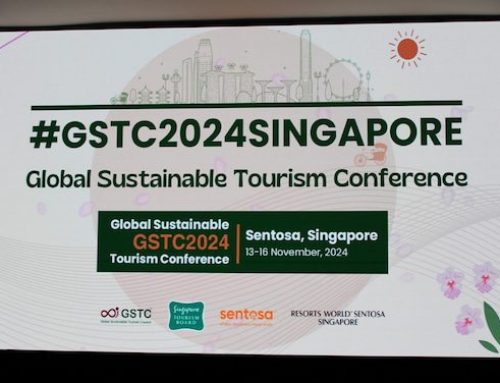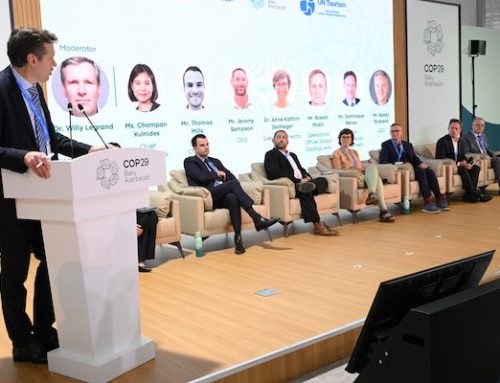14 experts shared their view
“Will the next 50 years bring the Great Decoupling or the Great Collapse?” [1] All bets are on the former when economies thrive decoupled from greenhouse gas emission. Decoupling must equally occur between societal development and biocapacity. The hotel sector has developed many sustainability and ESG approaches to chart a course of action towards decoupling growth from resource intensity which is known as the Great Decoupling.
And Great Hopes are set on the ability of businesses to innovate.
We are currently experiencing two approaches: those managers that bet on incremental improvements built on familiar technologies and processes [2] and those entrepreneurs that seek radical innovations [3] which are possible game changers on the sustainability front.
Faced with an increasing number of alarming records being broken [4], the pressing question is not whether change needs to happen but how it should unfold – as a process of continuous improvements or as a seismic shift leading to radical changes?
Considering the fragmented nature of the hospitality sector with its complex ownership and management models and reliance on a complex (and impactful) tourism value and supply chain, two questions are asked (feel free to tackle only one question of your choice, or all of course):
- Are incremental improvements of business models and processes a safe bet and sufficient to achieve substantial and required change? (with supporting examples)
- What do you think is/are the radical change(s) necessary in the tourism and hospitality sectors to effectively deal with major sustainability challenges? (with supporting examples)
GSTC CEO Randy Durband, answered the question: What do you think is/are the radical change(s) necessary in the tourism and hospitality sectors to effectively deal with major sustainability challenges?

Continue reading the original article written by Willy Legrand, Professor at IU International University of Applied Sciences Germany for www.hospitalitynet.org and all 14 expert views here: https://www.hospitalitynet.org/viewpoint/125000209/126002240.html
References
[1] Steffen, W, Broadgate, W, Deutsch, L., Gaffney, O, and Ludwig, C. (2015). The trajectory of the Anthropocene: The Great Acceleration, The Anthropocene Review, 2(1), 1-18. https://doi.org/10.1177/2053019614564785
[2] Schumpeter, J. A. (1934), “The Theory of Economic Development”, in Baumol, W.J. (1990), “Entrepreneurship: Productive, Unproductive, and Destructive”, Journal of Political Economy, 1990, vol. 98 no. 5. The University of Chicago.
[3] Christensen. C.M., Hall, T., Dillon, K., and Duncan, D. S. (2016), Competition Against Luck. The story of innovation and customer choice, HarperCollins, New York.
[4] United Nations Environment Programme (2023). Emissions Gap Report 2023: Broken Record – Temperatures hit new highs, yet world fails to cut emissions (again). Nairobi. https://doi.org/10.59117/20.500.11822/43922.




